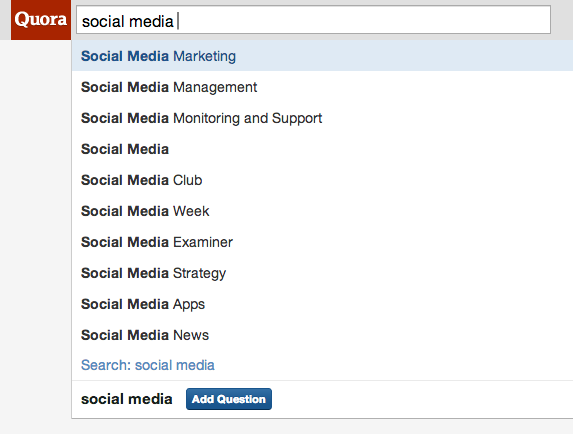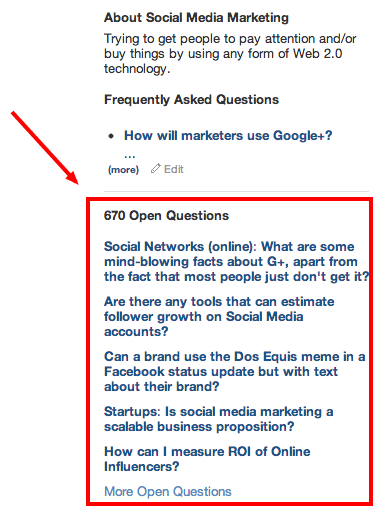7 Law Firm SEO Power Tips To Create Law Firm Content Your Clients Will Devour
Our Cheat Sheet To Generate Compelling Content For Your Law Firm That Provides Top Legal SEO Power
https://www.searchenginejournal.com/best-seo-content-tips/284899/#close
7 Key Steps Towards Creating Your Very Best Law Firm SEO Content TODAY
As the online marketing world changes, so do do the rules relating to your law firm SEO and the way you need to get your law firm’s message out there . . so we have put together 7 key tips to turbo charge your SEO content to maximize its impact in the current year and beyond.
The constantly changing SEO ‘landscape’ means that what applied a year or more ago does not necessarily apply today – and probably does not.
What is important is to provide valuable, relevant content to your clients – and your potential clients – but to also ensure that you have the very best law firm SEO strategies built into the content you are providing.
Only by doing that and by focusing on your quality content can you hope to achieve success with your online legal marketing efforts.
And using good content marketing skills is one of the best and most effective ways any law firm can market their services.
A recent survey found that almost 90 per cent of businesses actually rely on organic search – not paid advertisements, screaming TV commercials, Facebook ads – but content marketing to achieve organic reach.
Here’s the shot from SEMrush on their survey from 2021:

Those are compelling stats on the power of content to create great law firm SEO results.
So let’s get that done.
Here are the 7 key tips we have to achieve that goal?
1. Find Out How Much Google Loves You
It’s all part of the planning . . how to determine your Google love

Before you embark on your journey to accomplish the very best law firm SEO results you need to find out how much Google love your site is getting now.
This is a simple as doing a Google search.
Go to the Google search bar and type in – site:domain.com.
Google will then pull up the indexed pages that show up in the search results and which are capable of getting traffic, displaying them at the top of the results page.
You can also use a site like Semrush to see what traffic you are getting – and what your competitors are doing also (of which more below).
Once you enter a competitor URL, you’ll get a detailed breakdown of your (or your competitor’s) traffic.
You’ll also be able to see important website metrics that can provide more intelligence for you when working on your SEO like the volume of monthly traffic over time, traffic distribution by country, the keywords that bring them the most traffic, and more.
https://www.semrush.com/company/request-demo/?ref=4112962351&utm_campaign=aio_campaign&utm_source=berush&utm_medium=promo&utm_term=188
You can obtain a free trial to Semrush to find this information or simply rely upon your Google search or a tool like Ubersuggest to find the information you’re seeking on your own traffic volume and key metrics.
2. Become a Top SEO Writer –
Here’s What You Need to Do (Without being a Hemingway)

It’s not a question of writing like a literary master or a New York Times best seller author, but there are some things you really need to get used to in order to ensure the results from an SEO standpoint can be delivered.
These are factors that can and should apply to those who write your law firm blog or any other content for your website or social media. They are key SEO writing skills that ensure your writing efforts pay off in terms of results.
First – research your keywords.
There are any number of keyword tools out there that can help you in this process, some of which are outlined below.
But the key here is to search out keywords for which there is low competition and relevance to your law firm’s practice areas.
What are some of the best keyword tools to use?
There are plenty out there and choosing a good keyword tool is sometimes more diffcult than you might imagine. The best are (obviously, perhaps) paid tools but you can go cheap-or-free and still get very effective keyword tools.
For instance, the unglamorous Keyword Shitter is actually a very handy keyword search tools.
Others include tools Semrush and KWFinder are two excellent keyword tools. SEMrush provides some high end functionality and smarts that we like with its massive database of keywords and analytical tools that let you dive into the research and writing arena.
Second – know how to research the topic
And most importantly, make sure your are doing the other key thing required to make your post sing – and move to the top of the rankings – make sure you are answering some issue, question or query that your readers want to know about.
There’s little point researching keywords in an area of ‘non-interest’.
3. Write For Relevance – Not Repetition
Here’s How to Find Out What Your Potential Clients Are Looking For

Writing relevant content should be the focus of your efforts. Know your audience and what they are looking for, which means keeping your eyes on the following –
- Who is your audience and what do they want to know?
- What keywords are they using?
- What information do they need?
- Why do they need that information?
Here’s where a little research will pay dividends.
To check on what your clients are looking for, check some of the sites that provide this information for you.
Which sites?
Here are 3 top websites that will help you check what your clients and potential clients may be looking for now.
1. Use The Q&A Site Quora
Quora is one of the most popular websites on the Internet and by using its sheer power you can readily find topics that are areas of interest for your blog writing.
We have previously outlined the simple tricks on Quora to unleash your topic selection – such as – Type your topic into the search bar. Quora will populate the list with common topics. Quora search will suggest several topics available based on your search.
Quora search will suggest several topics available based on your search.
The results page will list popular questions and open (unanswered) questions. These unanswered questions are a golden opportunity to identify topics to blog about. It’s likely that others out there have the same question.
Use unanswered questions on Quora as a starting point for your blog content.
3. Your Own Content – Repurposed
Why not look at what you’vbe already written about and what has aroused interest and engagement and bring it up to date?
Repurposing content is one of the best and most easily overlooked tactics to achieve and to enhance your law firm SEO reach.
And the research and writing have largely been done.
By updating content you are providing a major advantage for your law firm clients and potential clients in a way that will help elevate your profile and your rankings, building on existing authority in the specific area upon which your writing.
A good way to search out the best-read posts on your site is to use the Google Search COnsole, which provides a host of key features letting you see the popularity of your posts.
So check that out.
3. Social Media Sites Like Twitter and Reddit
These and other social media sites provide a goldmine of ideas for post ideas.
In Reddit you can search for the relevant topic/subreddit and boom!… You will see a pool of user-generated contents to draw your post ideas from.
Social media monitoring will provide a host of ideas and using sites like Ubersuggest or Buzzsumo will help locate the social media posts that are also resonating currently.
4. Use Online Tools to Find Current Popular Posts
There are a variety of online tools that let you check out the current most popular posts in different topics.
These are tools like like Ubersuggest, SEMrush, and Buzzsumo that let you check for competitive analysis in different sectors and interest areas.
But remember when using social media to do so by planning what you want to achieve. Don’t use a scattergun approach, but focus on the social media channels you want to use and monitor your reach with them.
You can use a social media audit template like this to help with this process to make sure your social media SEO messaging is working.
There are tools that provide social media analytics to help with our targeting of appropriate social media sites. For lawyers marketing their firms, LinkedIn is a very effective social media platform.
Hootsuite Insights Powered by Brandwatch can help you to find key information to locate the best hashtags, referral sites, and even specific social authors and influencers for topics relevant to your legal firm.
https://www.semrush.com/lp/keyword-magic-tool-1/en/?ref=4112962351&utm_campaign=keyword-magic&utm_source=berush&utm_medium=promo&utm_term=268
4. Use Links to Generate Law Firm SEO Juice
How good linking will juice up your SEO content
Building links to your blog posts can be one of the pains of SEO work and writing but here’s a little-known secret – great content, well written will generate its own link ‘juice’.
It all comes down to the quality of the content, but you can help that process with a couple of nudges along.
What Sort of Links?
There are a couple of different types of links that you can use for your SEO.
These are internal links within your law firm site, or external links to relevant sites ‘off site’.
You should aim towards including one to three internal links for a 1,000-word article, as well as approximately five to seven external links, depending on the content that you’re writing.
And to generate those links you can use a variety of means, including such things as ‘outreach’ when you contact key contacts, influencers and others – working on a 1-in-10 response.
Tiresome, but worth it when you get that all-important link.
Different Links for Different Folks
Not all links are created equally. An inbound link that comes from a small blog is clearly not as significant as a link coming in from a major website, particularly one that is related to the law and your area(s) of practice.
Remember, if you’re really ambitious, you can even get a link via one of the major sites like Forbes where you may be able to provide a guest contribution that will generate huge traffic and leverage for your site.
Even a single link from a huge, well-respected site can do huge things for your site; it’ll increase your credibility with your audience, drive huge amounts of traffic, get your content in front of new audiences, and – ultimately – lead to more sales and leads. So, how do you get an in at one of the larger publications and get a link from one of the big dogs?
If you get on the radar of the right editor and provide the sort of information they are looking for you can potentially obtain massive leverage for the sight and generate results that are truly worth it. You can, of course, focus on guest posting with smaller sites but while you’re doing that, why not focus on doing a piece for a major site that provides the sort of content you can provide.
We wrote recently about law firm SEO expert Chris Dreyer’s 12 means of achieving backlinks to your law site, which provide some good insights and ideas for link generation.
Remember when looking to further promote your law firm for additional SEO power, get citations from key legal directories, obtain whatever reviews or endorsements you can and get on to local directories particularly Google My Business.
Check our LawFuel article about local SEO and Google My Business tactics and why you should use them right here.
5. Analyze the Competition
You can level the law firm SEO playing field by being smart this way
Knowing who your competitors are is essential if you are going to achieve good search engine rankings.
SEO competitors are those competitors that rank for the search queries that your law firm is seeking to rank for. The actual ranking will alter depending on the topic that you are working on or with, but it is important to identify your competitors and the keywords they are ranking with.
Most law firms will have different areas of practice for which they seek to rank in the search engines and so different content for the law firm will have a totally different emphasis and also have different competitors.
So to have tools that let you identify those competitors and their keyword rankings become important when it comes to generating quality content for your legal marketing.
There are a number of competitor research tools helping to get some easy ways you can score good ‘wins’.
Among the tools you can access (paid or free) include the following –
Similarweb – a great tool to see who your competitors are in any marketplace. There’s a paid version but there are some free stats that will help you find important information about your competitors.
Hrefs – this is another powerful tool that can be expensive, but it provides a range of extremely good statistics and data points to let you find out exactly where you are in the marketplace.
Spyfu – another tool providing some interesting ‘spying’ features that is one of the most popular tools in this space.
6. Edit and Think About Your Content
Remember – You’re writing with care, not with cynicism
It sounds simple, but to actually plan your content and write the sub-heads to provide an outline of what it is about will help do two key things: first, speed up the writing process and second, provide readers with the ability to quickly skim the content to see if it is the material they want to read.
And then edit it. Make it readable. Short sentences, like these.
Lawyers can (with a hat tip to them, of course) be somewhat verbose at times. They can also write and even enjoy writing legalease.
Keep it sharp, clear, accurate and even fun.
Write with a clear idea of what you want to say and say it.
It is by following a clear process rather than doing something that used to happen in the good old, bad old days of law firm SEO (or any SEO, actually) when the writing was all about how many times you could work your favored keywords into the post.
No longer. Big mistake.
Write with authority and clarity about something you actually know about and want to clearly express.
And when you are writing look for some original research to put into the items rather than quoting from everyone else. If you provide some original research you will help with your overall legal SEO and generate higher traffic and authority.
One very handy content post SEO tool you can use to speed up your writing process is the very good report from Jon Morrow of CopyBlogger, which you can download here.
7. Never Overlook The Headline for Its SEO Power
The headline comprises the most important words in your blog post . . here’s why
 Never underestimate the power of your headline.
Never underestimate the power of your headline.
Research shows that on average, 8 out of 10 people will read headline copy, but only 2 out of 10 will read the rest. This is the secret to the power of your title, and why it so highly determines the effectiveness of the entire piece.
The headline is the most important element of your content. You can write the best 800-word blog post of your life, but if the headline is boring and bland, that post might never get read.
Headlines need to be the driving force that moves readers to your content and will outline what sort of content you are providing.
The headline needs to be convincing. To provide a motivation for the readers to read, quite simply.
CoSchedule’s blog post Headline Analyzer can help you to create headlines that will drive traffic, shares, and your law site’s SEO value. Scoring your overall headline quality based on structure, grammar, and readability, the tool provides comprehensive information for making headlines better.
Using power words helps generate higher engagement at an emotional level with your content.
The free tool suggests that including words in the four power categories, Common, Uncommon, Emotional, and Power will boost your headline’s score and find the perfect balance.
If you want key tips on headline writing check out what legendary advertising guru David Ogilvy had to say about headline writing in this piece some years ago on ‘5 Tips to the Perfect Headline’.
Conveying the power of your blog post will only work if you are able to convert your readers into those who read the post – not just the headline.
Let us know your experiences with law firm SEO and the content writing tips you can share with others.
John Bowie is the publisher of LawFuel. Contact him through LInkedIn.
ReFuel with the top law news weekly that’s fun to read


